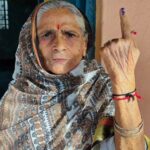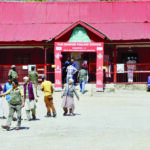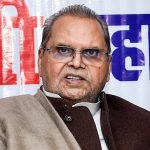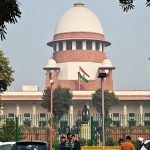Budgam, May 20 : The town of Budgam and its adjoining villages saw a significant voter turnout as residents flocked to polling stations, adhering to the traditional voting patterns that have long defined local elections. Despite the presence of new candidates and emerging political movements, the electorate largely favoured familiar parties and established leaders.
Polling stations in Razwen, a village approximately half a kilometer from Budgam town, witnessed particularly high turnout. By 1:00 pm, 314 out of 889 eligible voters had cast their ballots at Razwen A, while Razwen B recorded 339 votes out of 830 eligible voters.
Showket Ahmad, a voter from Razwen, expressed the community’s hope that their votes would address rising electricity bills and high inflation, particularly in food prices. He highlighted that most residents are marginal farmers with modest purchasing power, frustrated by unemployment and inflation.
A notable exception to the traditional voting patterns was observed among the youth, who voted for change. Ishfaq Ahmad Thoker, a first-time voter from Razwen, noted that while his elders traditionally supported a specific party, he and his peers decided to vote differently. “The traditional parties disappointed us with their performance in the past. We want to elect a candidate who will represent youth and their aspirations,” Ishfaq said.
In the Karipora locality of Budgam town, 400 votes were registered by 1:00 pm out of a total of 583 eligible voters. The UstaadMohalla of the main town also saw significant voter participation, with two polling booths recording 367 and 290 votes out of 1016 and 872 eligible voters, respectively, by afternoon.
Younis Ahmad, a young voter from UstaadMohalla, explained his continued support for a particular party, citing the achievements of their favored leader. He pointed out that most developmental projects in Budgam, including a proposed Unani hospital and the widening of the Humhama-Budgam road, were initiated during this leader’s tenure and await completion.
Similar voting patterns and sentiments were evident in Ichgam village on the outskirts of Budgam town. Voters from both Shia and Sunni communities participated robustly, reflecting a broad-based engagement in the electoral process.
Authorities at all polling stations made adequate arrangements, providing facilities such as drinking water, first aid, and wheelchairs for voters with disabilities.
The residents of Budgam, while largely adhering to traditional voting lines, also exhibited a clear desire for development and resolution of local issues, particularly among the younger generation seeking change.










